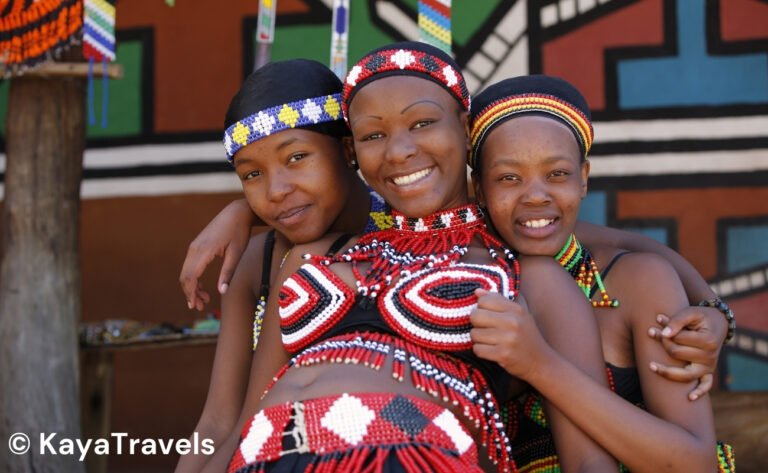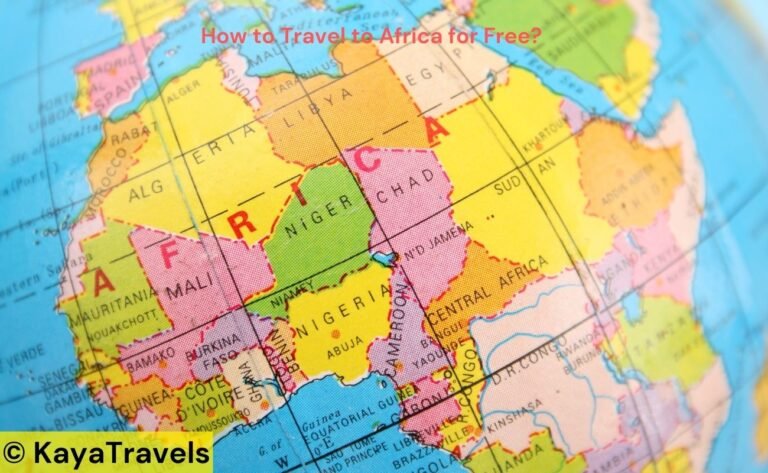Venturing into the heart of Africa on a safari is an unforgettable family adventure. Engaging in the shared discovery of witnessing majestic wildlife in its natural habitat provides an enriching experience for both young and old.
Family-friendly African safari vacations offer a unique blend of thrilling wildlife encounters with accommodations and activities tailored for all ages.
Africa is home to various safari destinations, each with its charm. For families with deep pockets, luxury accommodations like the Four Seasons Safari Lodge Serengeti in Tanzania provide sumptuous comfort nestled in the sweeping plains of Central Serengeti.
On the other hand, bespoke service providers can curate all-inclusive safari packages that cater specifically to family needs, ensuring even babysitters are on hand to assist.
When considering a family safari, look for resorts and camps that prioritize safety and offer engaging wildlife-themed activities.
Establishments such as the Sabi Sabi Bush Lodge in South Africa go the extra mile with family-friendly suites and dedicated centres for children, ensuring that the younger adventurers can learn about the bushveld in a fun and instructive environment. These vacations aren’t just about the animals but about creating lifelong family memories.
Choosing the Right Safari Destination
Before you set off on an adventure with your family, select a safari destination that not only promises an encounter with Africa’s majestic wildlife but also caters to the needs and safety of all family members, no matter their ages.
Top Family-Friendly Safari Countries
Kenya and Tanzania are often at the top of the list for a family-friendly safari experience. They both offer vast savannas teeming with wildlife, including the iconic Big Five and are great for witnessing the dramatic Great Migration. South Africa is another excellent option, blending first-world infrastructure with stunning national parks that are welcoming to families and often more affordable.
- Kenya: Witness the Great Migration in the Masai Mara and visit giraffe centres and elephant orphanages that engage young minds.
- Tanzania: Explore the Serengeti and possibly combine your safari with a visit to Zanzibar for beach relaxation.
- South Africa: Drive through Kruger National Park for a self-guided tour, or explore malaria-free reserves ideal for younger children.
Safari Regions and Highlights
Each country offers unique regions catering to different safari experiences, giving you various choices depending on what you and your family want to see and do.
- Botswana: Renowned for its water-based safaris in the Okavango Delta and substantial elephant populations in Chobe National Park.
- Namibia: Features unique desert landscapes in Namib-Naukluft National Park and wildlife in Etosha National Pan.
- Zambia: Known for walking safaris in South Luangwa National Park, perfect for families with older children seeking an active adventure.
- Uganda and Rwanda: Offer a chance to trek through dense forests to encounter gorillas, a once-in-a-lifetime experience for families with teenagers.
By focusing on countries with a reputation for family-friendly safaris and considering each region’s distinct experiences, you’re sure to find the perfect African adventure for your family.
Planning Your Family Safari Itinerary
Crafting the perfect itinerary is crucial for a memorable family safari. You’ll want to address when to go, what to see, and how to include downtime for everyone.
Duration and Timing
The length of your safari and the time of year you choose to travel will significantly influence your experience.
- Best Seasons: Aim for the dry months (June to October) for the best game-viewing opportunities.
- Beach Extensions: Enjoy a few days at a beach resort after your safari.
- Wildebeest Migration: Plan for July to October in the Maasai Mara or Serengeti to witness this spectacle.
Must-See Wildlife and Natural Wonders
Include diverse habitats in your safari to see various animals and landscapes.
- Serengeti & Maasai Mara: These parks are famous for big cats and the Great Wildebeest Migration.
- Ngorongoro Crater: A vast volcanic crater teeming with wildlife; a must-visit for a unique game drive experience.
- Olduvai Gorge & Great Rift Valley: Combine history with nature by visiting these significant archaeological sites.
Balancing Adventure and Relaxation
While excitement is key, ensure there’s time to unwind.
- Game Drives: Plan for morning or evening drives when animals are most active.
- Nature Walks: Include guided walks for close-up encounters with nature.
- Itinerary Tips: Alternate busy safari days with calmer activities or free days to prevent exhaustion.
Photography Tips
Choosing Equipment:
- Camera: A DSLR or mirrorless camera with a good zoom lens (at least 200mm) is ideal for wildlife photography. For convenience, consider a high-quality point-and-shoot with optical zoom.
- Lenses: A telephoto lens is crucial for capturing wildlife from a distance. A wide-angle lens can be helpful for landscapes and group photos.
- Protection: Bring lens cleaning kits and protective bags or covers to shield your gear from dust and moisture.
Photography Tips:
- Timing: The best light for photography is during the golden hours, shortly after sunrise and before sunset. Plan your game drives around these times if possible.
- Stability: Use a tripod or monopod to stabilize your shots, especially when using long lenses. A bean bag or cushion can help stabilize your camera for moving vehicles.
- Patience: Wildlife photography requires patience. Wait quietly for the perfect shot and respect the animals’ space.
- Safety: Always stay within the safety guidelines provided by your guide. Never attempt to approach wildlife to get a better shot.
Capturing Memories with Kids:
- Encourage kids to take their photos. Provide them with simple, durable cameras.
- Teach them to observe quietly and patiently for the best photo opportunities.
- Create a photo journal or scrapbook as a fun way to remember the trip.
Remember, every family is different, so tailor your itinerary to match your family’s interests and stamina.
Accommodations and Amenities
When planning your family safari getaway, choosing the right place to stay is crucial. You’ll want to look for accommodations that offer comfort and convenience, ensuring your family has a memorable and enjoyable experience.
Lodges and Tented Camps
Safari lodges and tented camps are popular options when it comes to accommodation. Lodges are solidly built and often offer swimming pools and restaurants. Tented camps provide a closer-to-nature experience without sacrificing comfort, featuring beds, en-suite bathrooms, and frequent electricity. Both lodges and tented camps usually include game drives and wildlife-viewing activities.
- Kenya Family Safari lodges typically have interconnecting rooms for families.
- Tanzanian tented camps offer an authentic safari ambience while ensuring safety.
Family-Friendly Facilities
The best family-friendly safari accommodations feature a variety of amenities catered to children:
- Interconnecting rooms or family units allow easy access between family members.
- Swimming pools offer a fun way to relax after a day of game viewing.
- Many provide babysitting services, allowing parents to enjoy some downtime.
These facilities aim to create a comfortable environment catering to the needs of parents and children.
Staying Healthy and Safe
Your family’s health and safety are paramount on a safari vacation. Ensure your accommodation provides the following:
- Malaria-free areas are ideal for families travelling with children.
- Verify if your lodge or camp offers onsite medical services or has quick access to a medical facility.
- Vaccinations may be required depending on your destination; consult your doctor beforehand.
- Dehydration: Always consume plenty of bottled water to stay hydrated, especially during hot and dry seasons.
- Sunburn: Use high-SPF sunscreen, wear hats, and cover up with long-sleeved shirts and pants during peak sun hours.
- Insect Bites: Apply insect repellent regularly and consider wearing clothing treated with permethrin. Sleep under mosquito nets if provided.
- Desert: Protect yourself from heatstroke by wearing light, breathable clothing and staying hydrated.
- Jungle: Keep dry to avoid fungal infections and use waterproof gear. Be vigilant about insect protection to prevent bites.
Pack items like sunscreen, mosquito repellent, and a basic first-aid kit to handle minor health concerns.
By paying attention to these accommodation details and amenities, you can ensure a safari that’s comfortable, thrilling, and safe for your entire family.
Educational and Conservation Experiences
Embark on an African family safari that is not just about the exhilaration of wildlife sightings but also emphasizes wildlife conservation and educational encounters. Your whole family can gain knowledge and contribute to preserving nature and local cultures.
Wildlife Viewing and Conservation
Witnessing wildlife in the African bush is an unforgettable experience, but it also serves as a powerful educational opportunity for families. Experiencing animals in their natural habitat can spark a lifelong passion for conservation.
- Protected Areas: Visit renowned reserves like the Serengeti and Kruger National Park, where conservation efforts help sustain diverse ecosystems.
- Guided Safaris: Professional guides share insights on animal behaviours and conservation challenges.
- Conservation Activities: Some tours offer participation in conservation projects such as anti-poaching patrols or wildlife research.
Cultural Interactions
Time spent with local communities provides a valuable cultural exchange and a deeper understanding of the Maasai culture and other indigenous groups living harmoniously with nature.
- Village Tours: Learn directly from Maasai warriors about their traditions and relationship with the wilderness.
- Cultural Workshops: Engage in workshops like bead-making or traditional dance, offering a hands-on approach to understanding local heritage.
By incorporating educational and conservation-focused activities into your safari, you contribute to preserving wildlife and gaining a richer understanding of the destinations you visit.
Practical Information for Families
When planning a family-friendly African safari, it’s essential to consider how you will travel and what to pack to ensure a comfortable and memorable trip for all ages.
Transportation and Logistics
Getting to Southern Africa
- Flights: Major airports serve as gateways to safari destinations—book flights to countries like South Africa, Tanzania, or Kenya, where many family safaris begin.
- Ground Transport: Safaris often include transportation. Look for packages with private vehicles to give your family flexibility and privacy.
Navigating the Safari
- Safari Vehicles: Open-sided or canopy-covered vehicles provide safe viewing of wildlife.
- Private Guides: Experienced guides can offer special programs tailored for children for educational and exciting experiences.
Travel Tips for Families with Children
Packing
- Essentials: Pack lightly, but don’t forget hats, sunscreen, and insect repellent.
- Clothing: Bring comfortable clothes; include layers for changing weather.
Staying Healthy
- Vaccinations: Consult your doctor for recommended vaccines before travel.
- Hydration: Always carry water on excursions to stay hydrated.
Making Memories
- Involve kids in kid-friendly activities like animal tracking, nature walks, or cultural visits.
- Capture memories through photos or journals.
Incorporate these tips into your safari planning to ensure a family travel experience in Africa that is comfortable, safe, and unforgettable.






